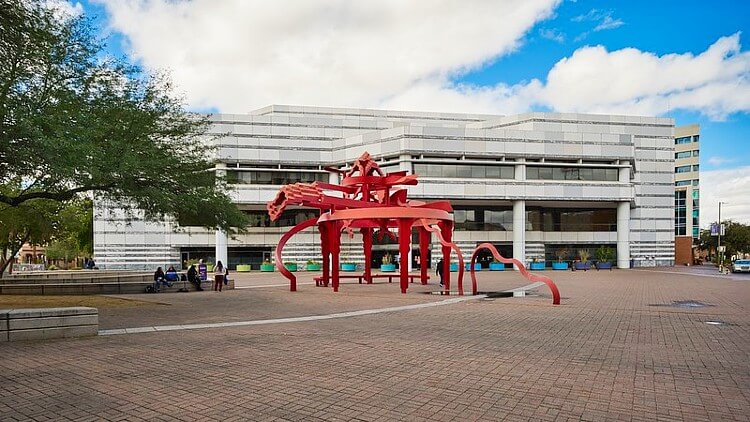Tucson is taking significant strides to support its youth by transforming an old EconoLodge into a transitional housing facility.
The Stone Avenue Youth Transitional Housing Project will provide shelter and essential services for young adults aged 18-24, aiding their transition to stable living conditions.
Introduction
The City of Tucson is launching a crucial project to support homeless youth, converting an old motel into a safe haven. The Stone Avenue Youth Transitional Housing Project aims to provide both temporary shelter and comprehensive support services, targeting young adults facing homelessness.
Project Overview
The Stone Avenue Youth Transitional Housing Project is a collaborative effort involving the City of Tucson Housing & Community Development Department (COT-HCDD) and various funding partners.
The initiative focuses on acquiring, rehabilitating, and converting a 52-unit motel located on North Stone Avenue into transitional housing for young adults aged 18-24.
This demographic often includes individuals who have aged out of the foster care system or are otherwise experiencing homelessness, making this project a vital resource in the community.
Location and Facilities
The project site, situated between East Speedway Boulevard and East Drachman Street, is part of the Feldman’s Neighborhood Association and the Miracle Mile Historic District.
The address for the facility is 1132, 1136, and 1148 North Stone Ave, Tucson, Arizona, 85705. This location was chosen for its accessibility and the potential to integrate into the community fabric.
The converted facility will offer the following amenities:
- Kitchenettes: Each unit will include a kitchenette equipped with essential appliances, such as electric ranges, refrigerators, and sinks, allowing residents to prepare their meals.
- Security Enhancements: Upgrades to the existing security system, including additional cameras, to ensure a safe living environment for all residents.
Funding and Financial Structure
The project’s estimated cost is approximately $5,071,000. Funding sources include:
- Community Development Block Grant (CDBG): $1,168,335
- HOME Investment Partnerships American Rescue Plan (HOME-ARP): $902,665
- Coronavirus State and Local Fiscal Recovery Funds (SLFRF): $3,000,000
This financial support underscores the project’s importance and the collaborative efforts of federal, state, and local agencies.
Support Services and Operations
Beyond providing shelter, the Stone Avenue Youth Transitional Housing Project will offer a range of support services, crucial for helping residents transition to stable living conditions. A non-governmental organization will manage the facility, offering:
- Case Management: Personalized support to help residents navigate various social services and resources.
- Counseling and Life Skills Education: Programs designed to enhance residents’ emotional well-being and equip them with practical skills for independent living.
These services are vital for assisting residents in finding employment, pursuing education, and ultimately achieving independence.
Community Impact and Future Prospects
The project is expected to make a significant impact on the local community by providing much-needed resources and support for a vulnerable population.
It not only offers immediate relief in the form of housing but also addresses long-term needs by providing comprehensive support services.
Environmental and Public Engagement
The City of Tucson has conducted an Environmental Review Record (ERR) to ensure the project’s compliance with environmental standards. The public is encouraged to submit their comments on the ERR by August 14, 2024.
This engagement reflects the city’s commitment to transparency and community involvement in the project’s development.
Final Thoughts
The Stone Avenue Youth Transitional Housing Project represents a beacon of hope for young adults facing homelessness in Tucson. By providing a safe place to stay and comprehensive support services, this initiative aims to empower residents to overcome their challenges and build a brighter future.
For further information and updates on the project, residents can visit the City of Tucson’s Housing and Community Development Department website.
Community members are also encouraged to participate in the public comment period, ensuring that this project meets the needs and expectations of the local community.
This project not only highlights the city’s commitment to addressing growing youth homelessness but also sets a precedent for future initiatives focused on supporting vulnerable populations in Tucson.
Sources: THX News, Core Services Group, The Center for Youth & City of Tucson.










